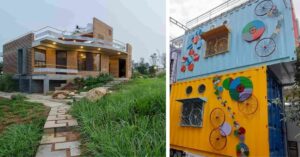I Transformed a 130-YO Heritage Bungalow into Victorian Architecture Hotel; Here’s a Look
Shrey Gupta created the Gethia chapter of Blue Book Hotels in Nainital, and it is reminiscent of the Victorian era with its teak wood and decor sourced from across India.
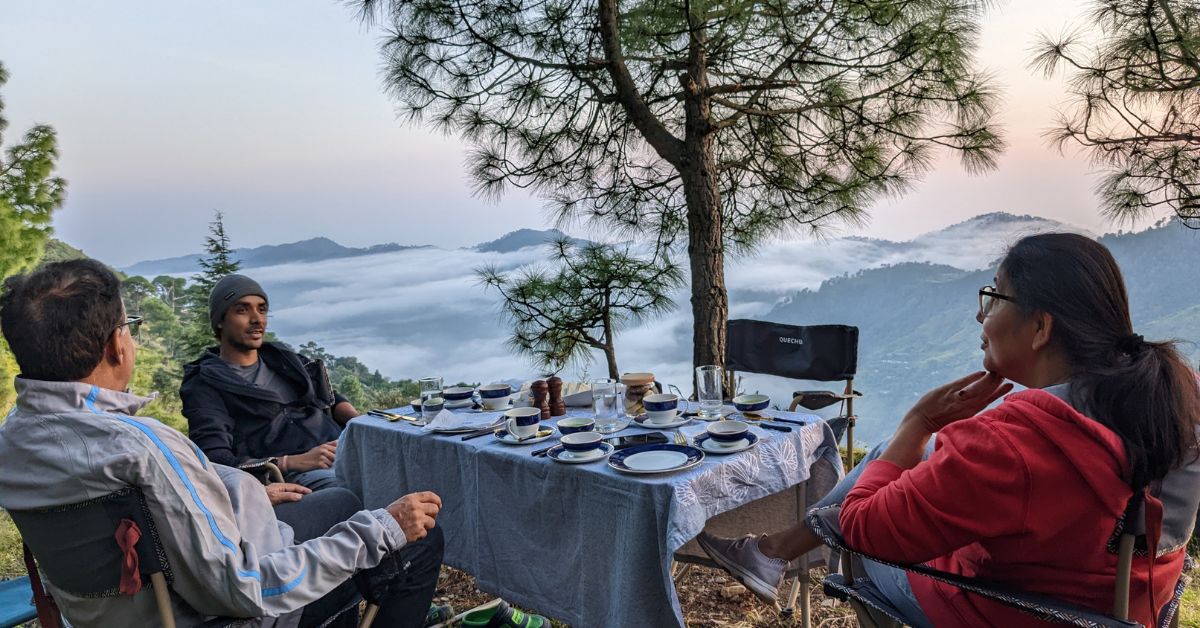
Few are familiar with the hidden gem, Jeolikot Valley — a Himalayan resort town in Uttarakhand, also known as the gateway to Nainital.
What once boasted an array of colonial-era bungalows during the British rule in India, now offers a dreamy bird’s eye view of the surrounding landscape, complete with its flowering orchards in summers and its white carpet of snow in winters.
When Shrey Gupta, an economics graduate from Delhi explored the place in August 2021, he simply couldn’t let go of it. This wasn’t the first time that the 25-year-old had looked at a hilltop and wished he could live there forever.
“I had always wanted have a house in the hills and do something in the hospitality space since I was a child,” he recounts in conversation with The Better India.
Today, Shrey’s manifestation of that dream is a luxury boutique hotel at Gethia in Nainital, a project by his firm, Blue Book Hotels.
But as he recounts, it wasn’t only the incredulous view that attracted him, but also the ancient story etched into the very walls of the 130-year-old heritage bungalow.
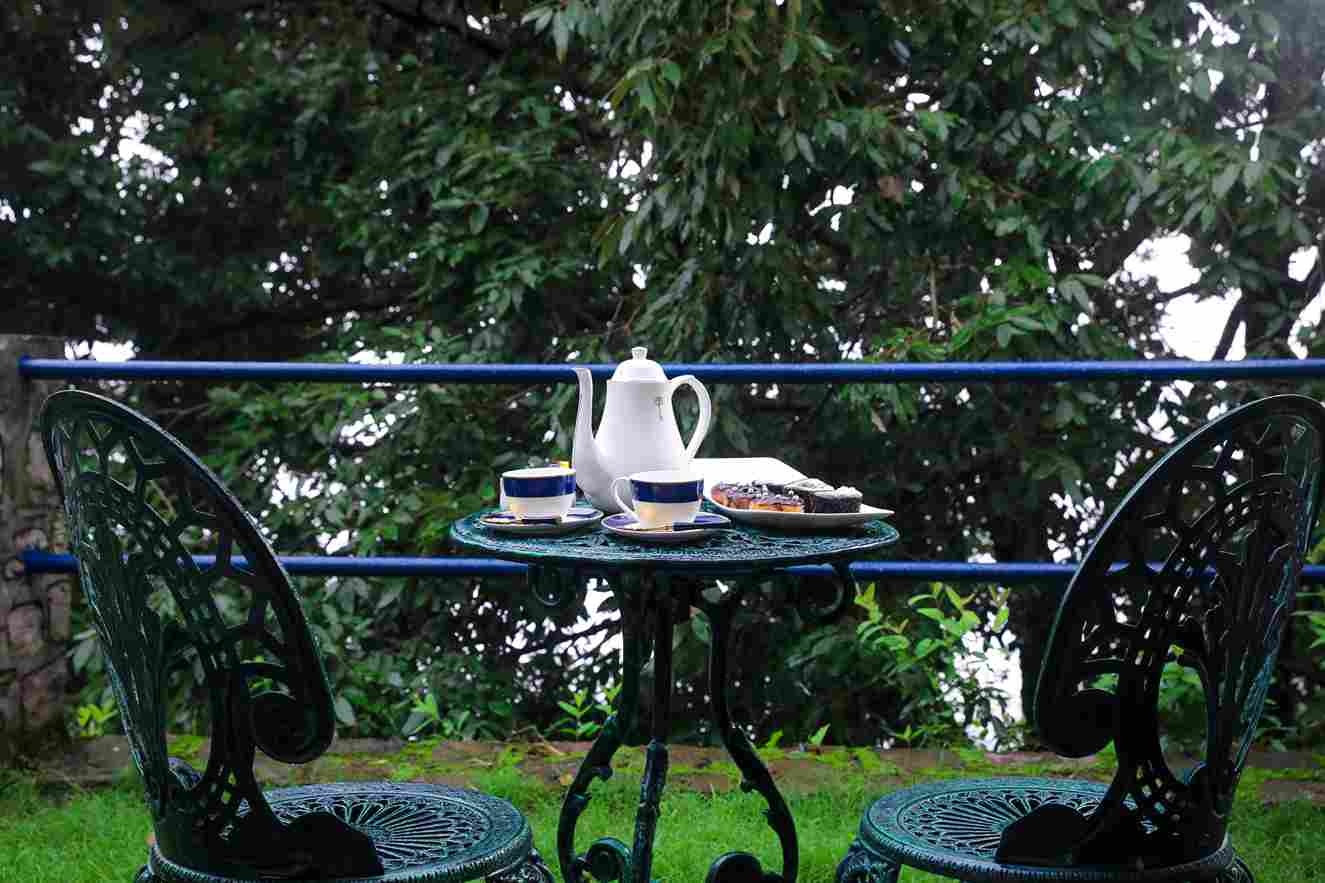
A story constructed in the 1800s
As the tale goes, it was a British woman, Madame Durell, who was the first owner of the heritage bungalow, one among the many that dotted the Gethia landscape.
The 12-room estate was occupied by her along with her husband, a British officer at the time.
“After Independence, when it was time to return to England, she was reluctant as she loved it so much here. So, she stayed back, married a local man from Gethia and had kids and eventually grandkids also,” says Shrey.
The previous owners who leased the house out to Shrey had procured it from Madame Durell’s grandkids. “When I met the owners through a common broker during the lockdown, I liked it. The four-acre property was different from the others on hills, as there was a lot of flat land, a rarity in these kinds of properties. We immediately undertook renovations,” he adds.
The entire process took four months and was filled with a “series of discussions with interior architects and work by 110 labourers”. The Victorian-era bungalow-turned-boutique hotel was ready to welcome guests in August 2022.
All renovations undertaken were in tune with maintaining the colonial vibe of the bungalow.
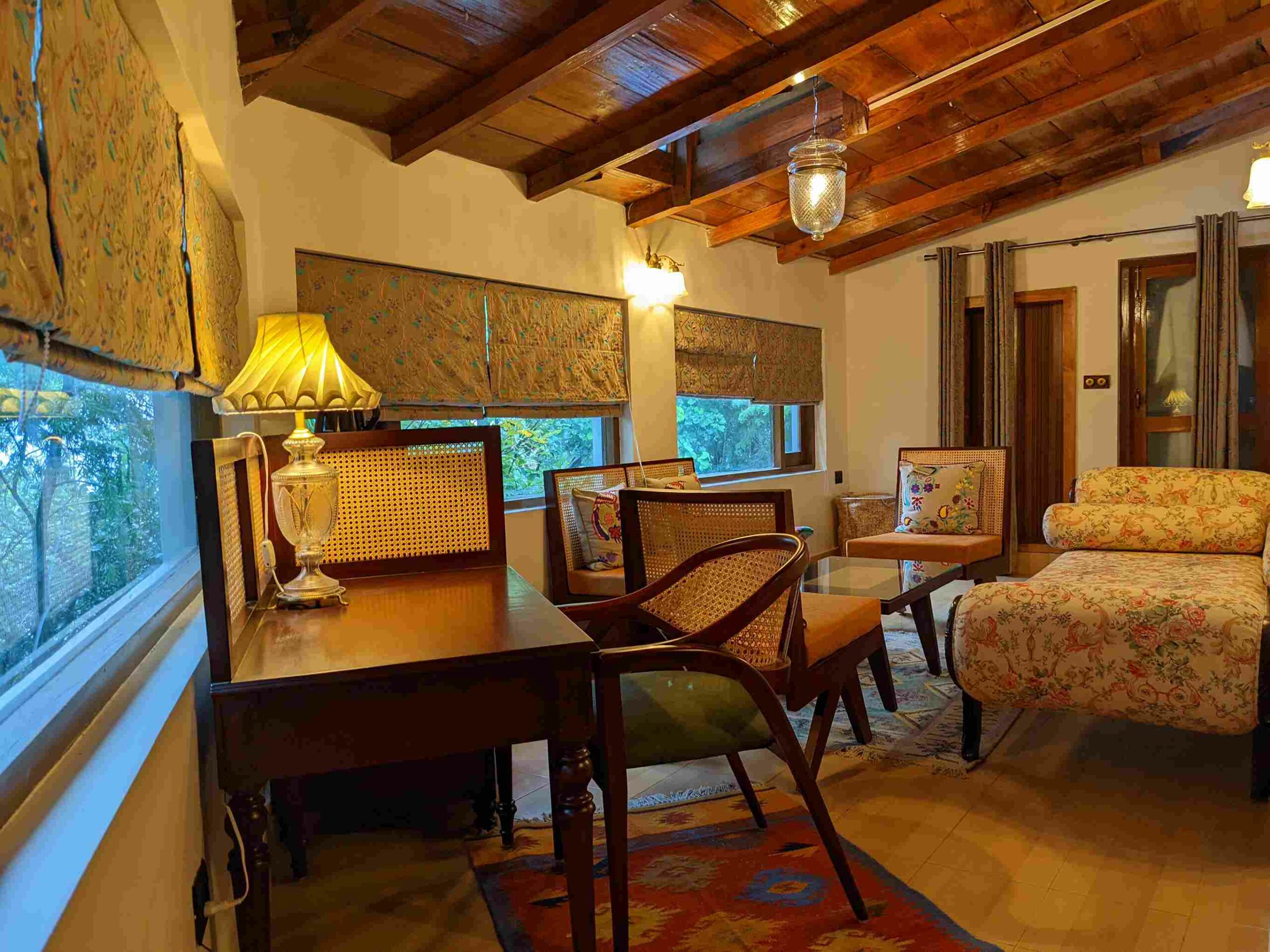
Citing the challenges that came along with it, Shrey says the bungalow was so old that it was tough to work with the old piping and electricity lines, as they did not know what to expect. Another factor was the leaking roof.
“While fixing the bungalow, we had to take care to preserve the architecture of it,” he says.
The Victorian allure of the bungalow coupled with the modern changes that Shrey has brought in add up to make a stay at the Gethia hotel an immersive experience in itself.
120-year-old wood that brings back Victorian memories
Taking us on a virtual trip around the luxury hotel, Shrey explains there are two bungalows.
“One is the 800 sq ft British bungalow with eight rooms, while the other is slightly more recent and built 20 years ago. We turned it into a Spanish contemporary house with four rooms,” he says.
He further explains that the entire ground floor of the British bungalow has been preserved to give it a heritage look and feel.
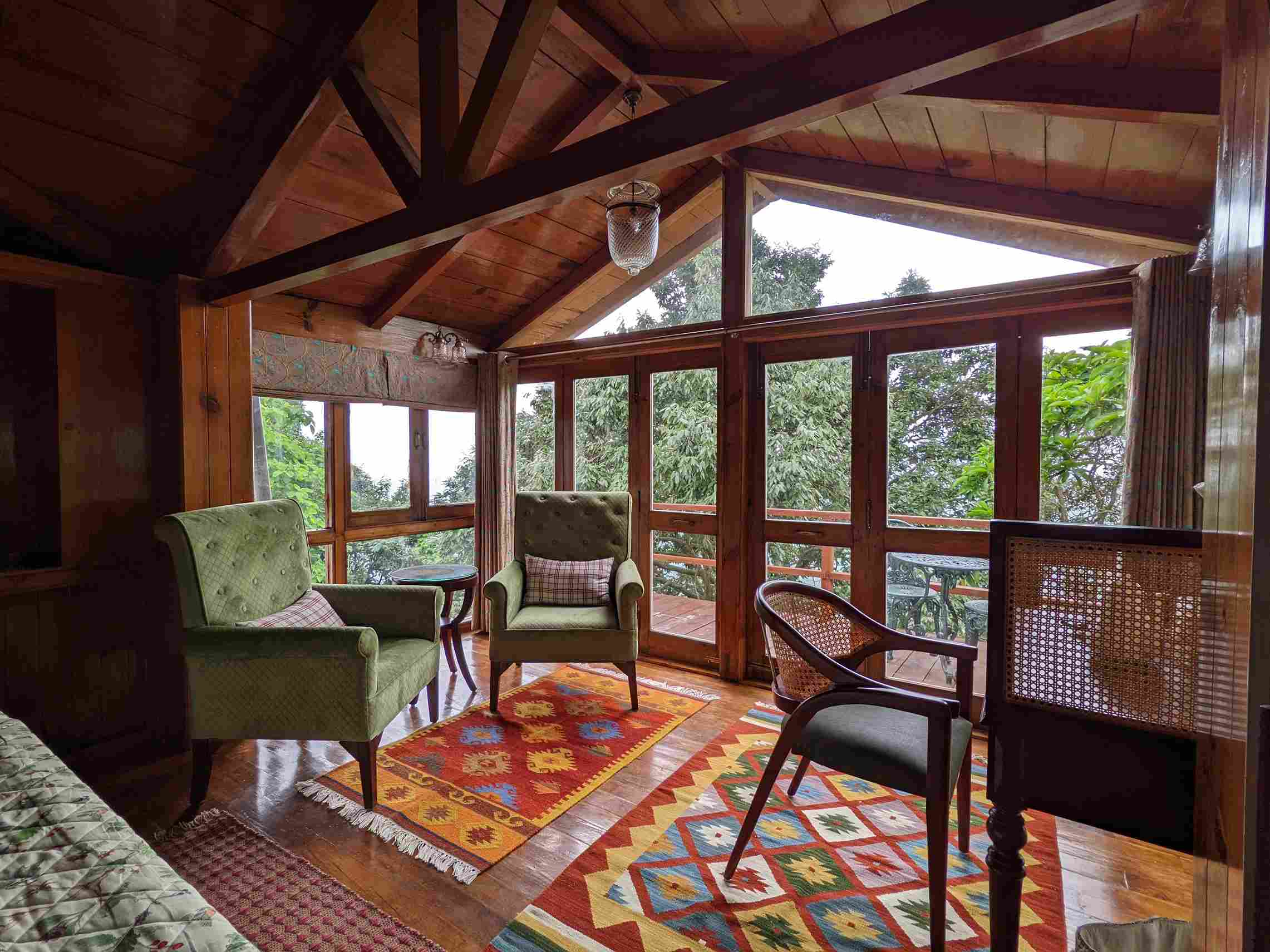
“Initially in 1890, the bungalow only had a ground floor, and the first floor had been constructed by the owners who bought it from Madame Durell’s grandkids. We were careful while restoring the ground floor ceiling and used teak wood to maintain the original look while preserving the stone walls. While we did not use the same furniture from that era, we ensured there was a consistency in style,” he explains.
As guests settle into the cosy quarters, there is much to marvel at in terms of the decor and furnishings, which pair well with the Victorian style.
Shrey elaborates, “Victorian style is all about bright colours, flowers, birds, etc. So, we ensured that the style exuded these elements. The furniture is velvet — reminiscent of that era, and we have a lot of brass crockery with golden rims and dark blue textures that were prevalent in English times. There are gazebos around the property — war tents striped blue and white — that replicate the English feel.”
He further points out that the luxury hotel has touches from across India with fabric from Panipat, crockery from Gujarat, cutlery from Moradabad, wicker furniture from Delhi, and gazebos from Jaipur.
An experience to look forward to
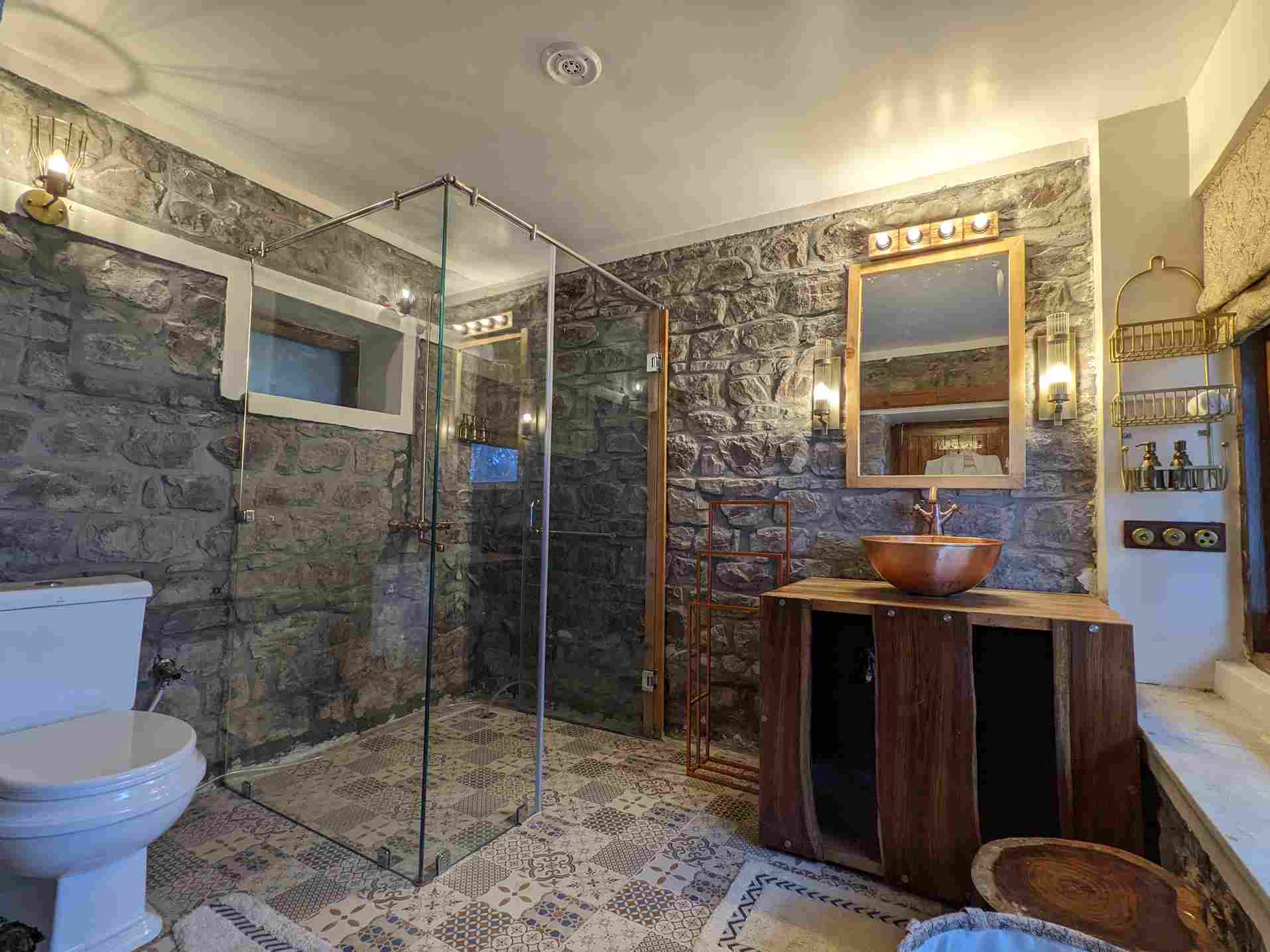
Every feature at Gethia is designed in a way that sustainability is at its core. A 200 sq ft organic garden blooms with various herbs, lemons, etc that serve as toppings on the delicious pizzas at the hotel.
Single-use plastic is avoided and garbage is segregated into dry and wet waste; the former is recycled and the latter is composted and used as manure in the garden.
In place of a usual buffet system, there is a set menu to avoid food wastage, and it is unique in the way the meals are served.
“Every meal is set up at a different spot,” explains Shrey. “While one may be a candlelight dinner at the poolside, another is under the gazebo, while a third may be at another place,” he says adding that these are “disruptions” he wanted to bring about in the hotel industry.
“We believe in creating an experiential stay for the guests; a cashless and hassle-free experience,” he adds. For this purpose, everything is included in the package — the amenities in the rooms, the meals, the high tea, the picnic, the mini bar, hikes, etc.
Owing to the strategic location of Gethia as a hub of culture, the locals are involved every step of the way.
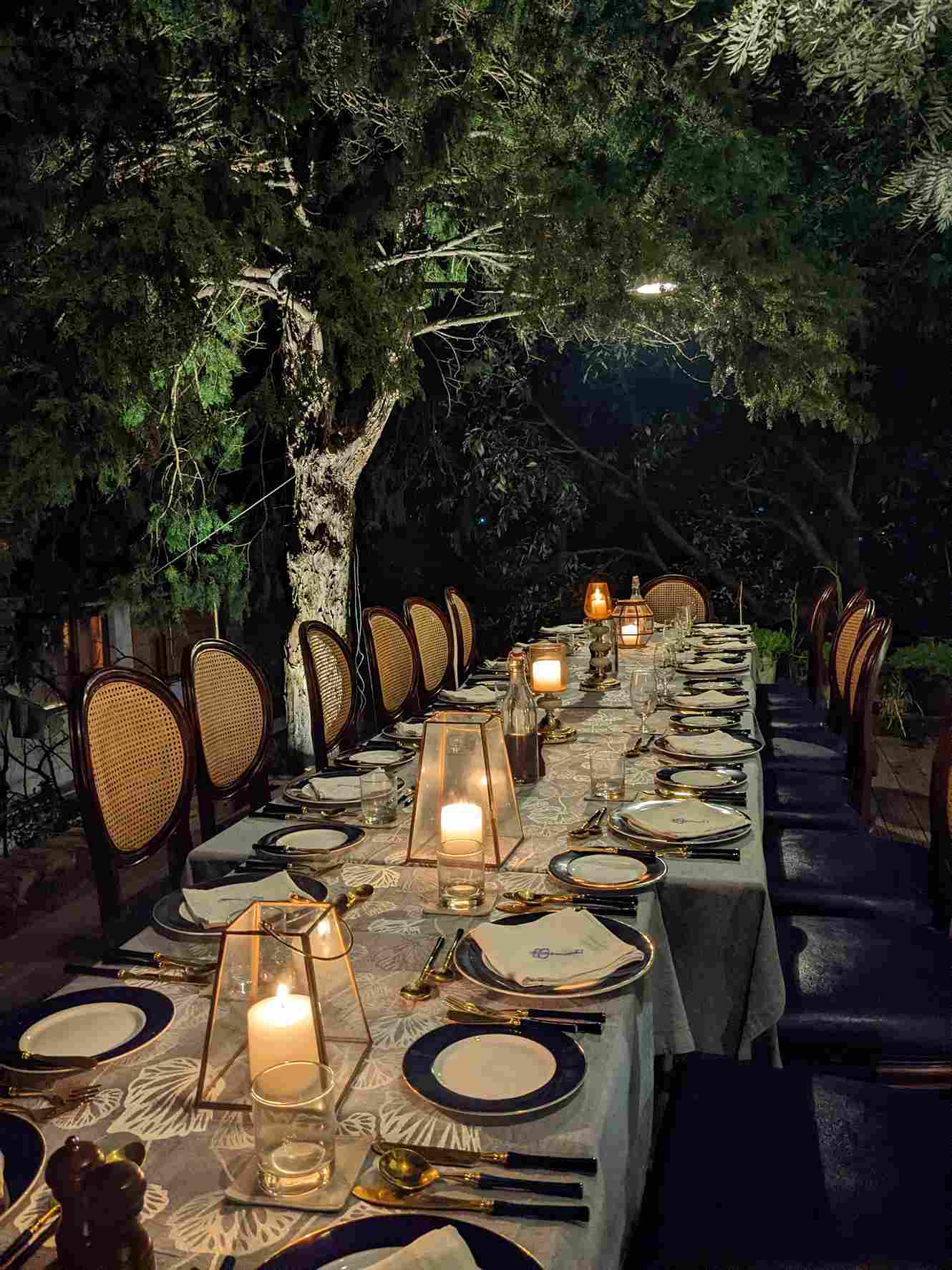
“Majority of the staff are from the nearby villages. The local women cook different cuisines such as continental, Asian, tandoor, etc. A local man on the team was a former halwai (confectioner) in the village and can be trusted with cooking a traditional Kumaoni lunch which includes pahadi mutton and paneer (cottage cheese), bhatt ki churkani daal (black soya bean curry), laai palak ki sabji (local spinach delicacy), bhang ki chutney (hemp seed chutney), and mandue ki roti (finger millet flatbread).
While the locals are an integral part of the experience at Gethia, Shrey too is engaged with them closely. “We do what we can to help them. In summer the place experiences water problems, so I cooperate with the sarpanch (village head) and we share water with the villagers,” he says.
Every room at Gethia is called a chapter and offers a unique view to guests, depending on what one is seeking during their vacation. While one room overlooks the valley and is ideal for a couple, another offers twin beds and is ideal for kids.
“The hotel has come a long way,” says Shrey. “The previous owners were running it as a homestay, so we brought in a lot of changes such as proper disposal of sewage in the treatment plant and bridging the gap between the locals and the guests.”
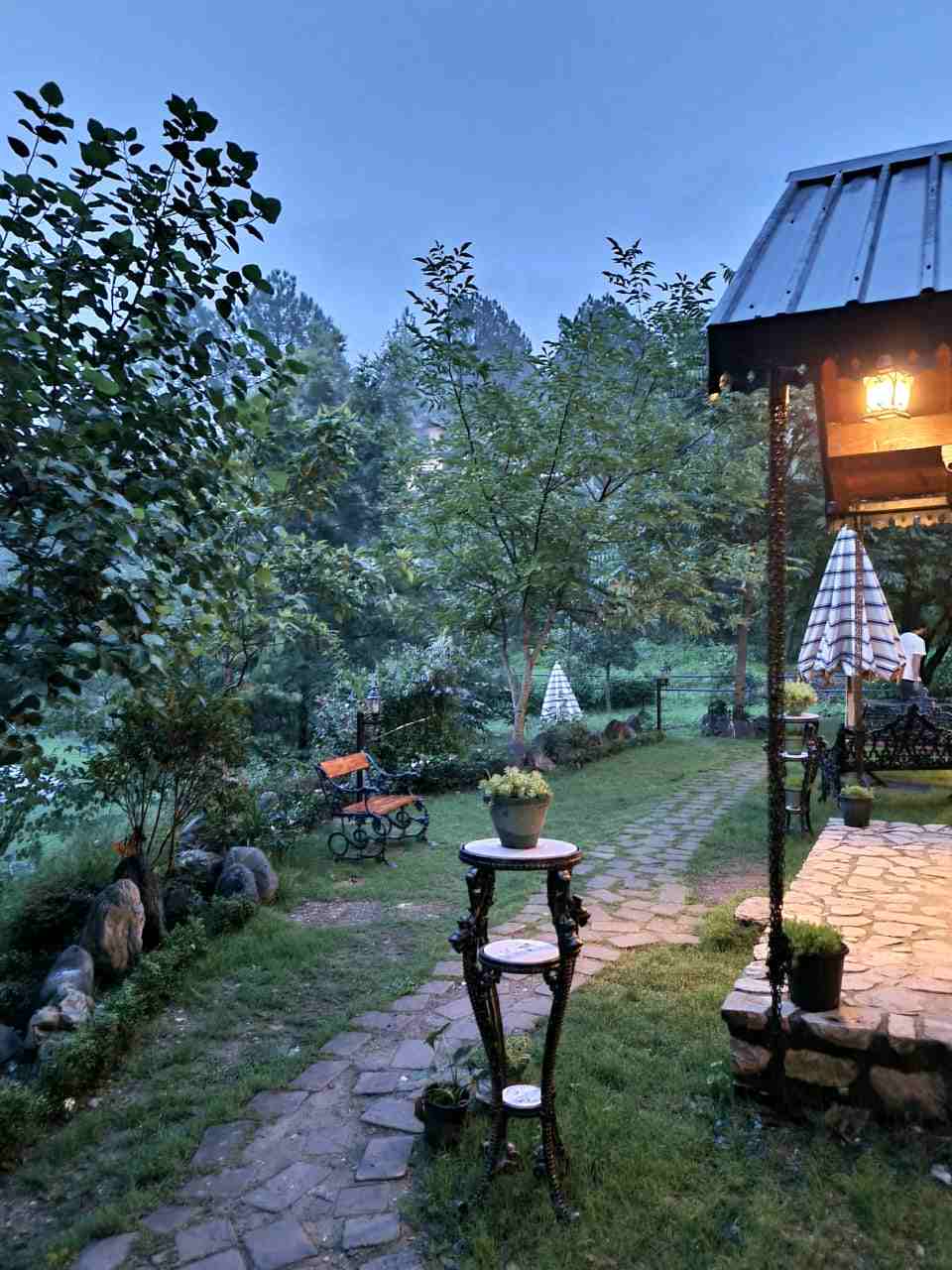
Guests can also engage in hikes, treks through the jungle or barbeques that are arranged at the property.
As Shrey explains, one of the housekeepers lives 10 minutes away from the property and guests can take a trip to their house to see their way of living. “It’s literally in the middle of nowhere. Leopards are a common sight in the region, and the houses have a beautiful view of the waterfall.”
He adds that there are also local Kumaoni restaurants — where guests can have a sumptuous lunch, as well as pristine lakes to explore.
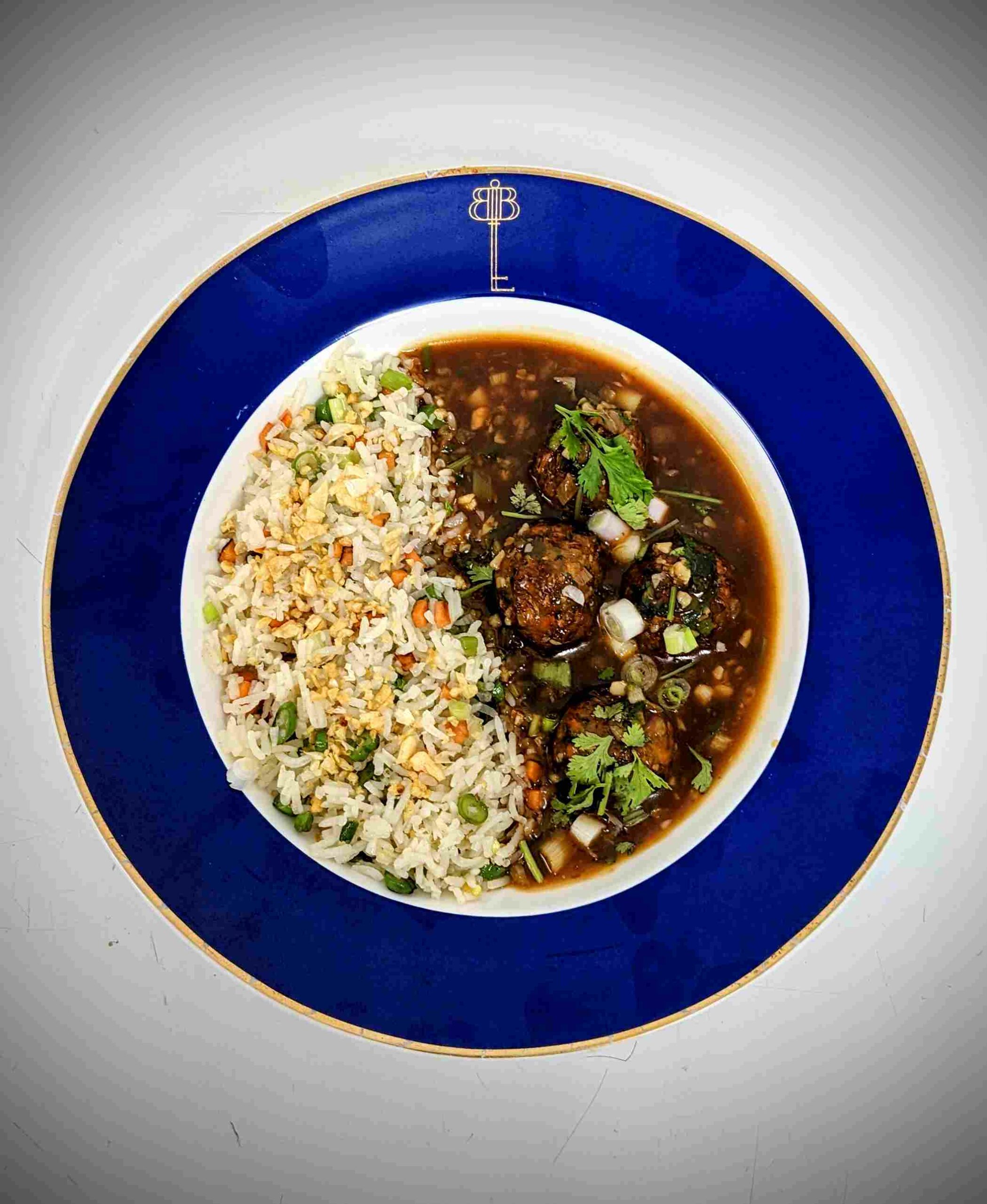
The luxury hotel hosts “around 50 guests every month”, and the room prices are in the range between Rs 15,000 and Rs 25,000, depending upon the season and meal plans.
As a guest walks into the Gethia chapter of Blue Book Hotels, Shrey can’t help but be proud of his labour of love — a walk, 130 years into the past. If you found our stories insightful, informative, or even just enjoyable, we invite you to consider making a voluntary payment to support the work we do at The Better India. Your contribution helps us continue producing quality content that educates, inspires, and drives positive change. Choose one of the payment options below for your contribution- By paying for the stories you value, you directly contribute to sustaining our efforts focused on making a difference in the world. Together, let’s ensure that impactful stories continue to be told and shared, enriching lives and communities alike. Thank you for your support. Here are some frequently asked questions you might find helpful to know why you are contributing?

Edited by Pranita Bhat.
This story made me
-
97
-
121
-
89
-
167




